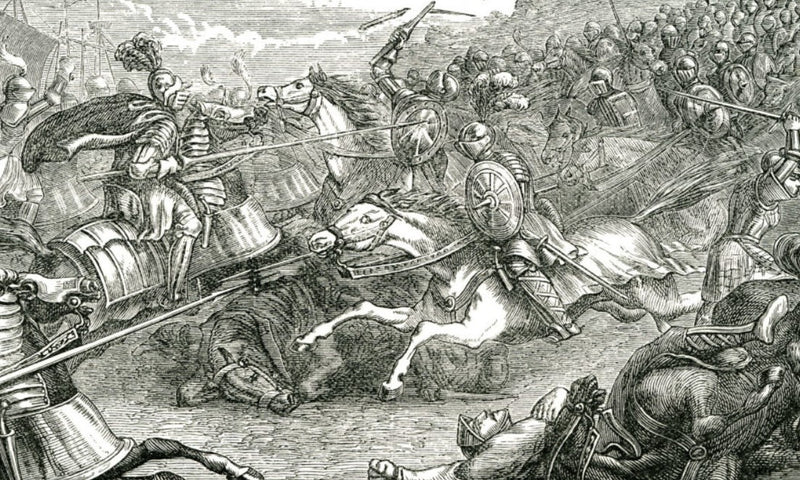Clan Farquharson People Findla Mor (d.1547)Findla Mor can be regarded as the first Farquharson. He died while bearing the royal standard at the Battle of Pinkie (depicted above), near Musselburgh in East Lothian. Beatrix Garden (fl.1550)The widow of Findla Mor, Beatrice Garden was an acclaimed musician, known nationwide for her outstanding ability on the clarsach, […]
Tag Archives: Farquharson Places & People
Clan Farquharson People
Findla Mor (d.1547)Findla Mor can be regarded as the first Farquharson. He died while bearing the royal standard at the Battle of Pinkie (depicted above), near Musselburgh in East Lothian.
Beatrix Garden (fl.1550)The widow of Findla Mor, Beatrice Garden was an acclaimed musician, known nationwide for her outstanding ability on the clarsach, a small Celtic harp, raising the instrument to a new level of sophistication.
Queen Mary presented her with a specially commissioned clarsach, which is today kept in the National Museum of Antiquities in Edinburgh, one of only two still surviving.
Anne McKintosh (fl.1745)‘Colonel Anne’ was the daughter of Farquharson of Invercauld.
Whilst her husband, a Captain, was away leading men for the Hanovarian army, twenty-year-old Anne rallied the Clan MacKintosh for the Jacobite cause. At the Battle of Prestonpans her husband Angus was captured.
He was sent home on his word he would not take arms against the Jacobites for one year. When he arrived home his wife welcomed him saying, ‘Your servant, Captain’. He famously retorted, ‘Your servant, Colonel’.
Anne was imprisoned for six weeks at Inverness after she was found to have aided Prince Charles in avoiding capture.
Francis Farquharson of Monaltrie (fl.1746)
Francis Farquharson, the Baron Ban, led the Farquharsons at the Battle of Culloden, with his three hundred men positioned in the centre of the front line.
He was captured and taken to London for execution at the Tower. On the morning of his execution however he was given a reprieve, along with two other Highland officers.
He remained in prison and was eventually given parole, the condition being he remained in England. In all it was twenty years before he would return to Scotland.

